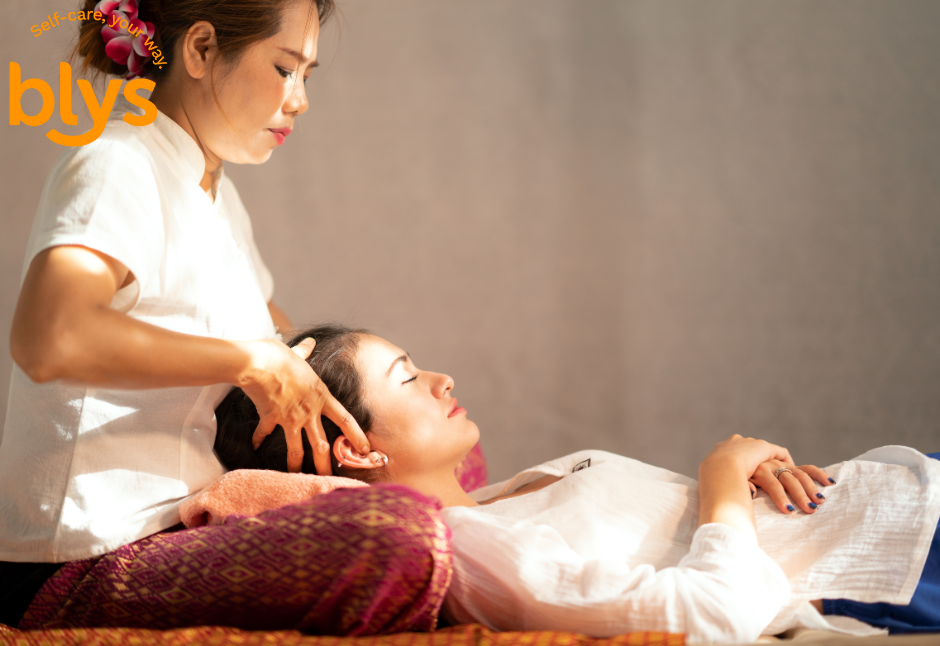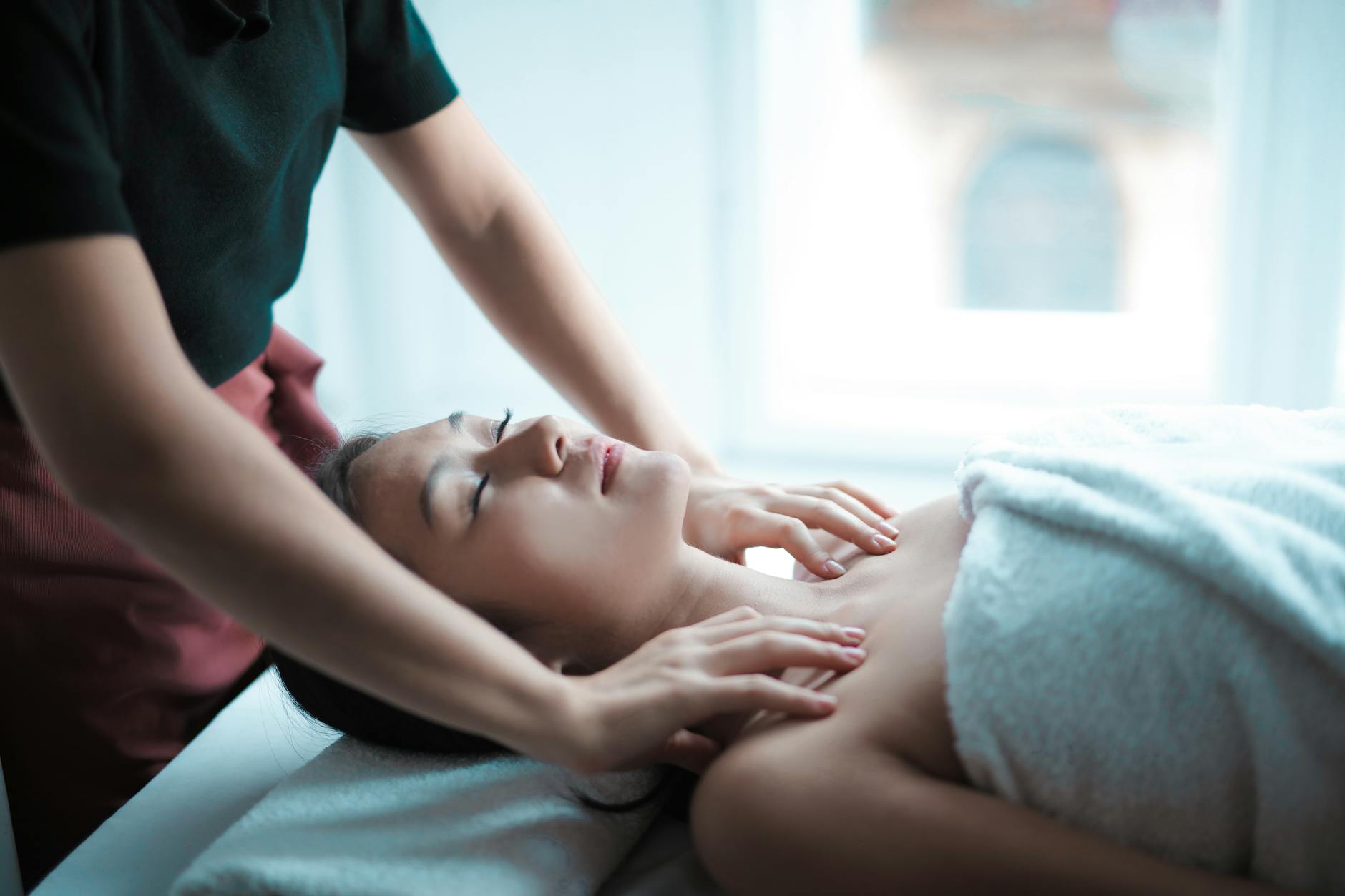
Sleep troubles are on the rise in the UK, with many people struggling to get quality rest. Stress, long work hours, and health conditions often lead to insomnia, leaving both the body and mind exhausted.
Instead of relying only on sleep aids, more Brits are turning to natural solutions. Massage therapy is one option that stands out. Beyond easing muscle tension, massage supports better sleep by lowering stress, calming the nervous system, and influencing key hormones linked to rest.
In this blog, we’ll look at the science of massage for insomnia, how it affects hormones like serotonin and cortisol, simple self-techniques to try, and why professional sessions make a real difference for long-term results.
Understanding the True Value of Sleep
Sleep is not just downtime; it’s the body’s way of repairing, recharging, and preparing for the next day. Quality rest supports memory, concentration, mood regulation, and physical health. Without it, daily performance and long-term wellbeing can quickly decline.
Lack of sleep is linked to issues such as weakened immunity, higher stress levels, and even increased risk of chronic illnesses. In UK, sleep problems are more widespread than many realise.
Research shows that around 60% of adults regularly experience at least one sleep symptom, such as difficulty falling asleep or waking during the night, and almost 15% suffer from chronic insomnia. These numbers highlight just how common and serious disrupted sleep can be.
Recognising the importance of sleep is the first step toward finding lasting solutions. Massage therapy offers a natural way to tackle both the stress and physical tension that often keep people awake at night.
Looking for a massage style that gently calms the body and mind? Discover how Swedish massage techniques
The Science of Massage and Sleep Hormones
Massage therapy goes beyond soothing tight muscles – it influences the body’s chemistry in ways that directly improve sleep quality. Several key hormones and neurotransmitters play a role in this process.
Serotonin and Melatonin
Massage has been shown to increase serotonin, a neurotransmitter that helps regulate mood and relaxation. Serotonin is also a precursor to melatonin, the hormone that signals the body it’s time to sleep.
By boosting serotonin, massage naturally supports healthier melatonin production, which is essential for falling and staying asleep.
Cortisol
High cortisol, the body’s main stress hormone, is a major contributor to restless nights. Studies have found that massage significantly lowers cortisol levels, reducing stress and creating the right conditions for deeper rest.
Dopamine and Endorphins
Massage also increases dopamine and endorphins, the brain’s “feel-good” chemicals. These not only lift mood but also encourage a state of calm that makes drifting into sleep easier.
In fact, research published in the Journal of Clinical Rheumatology found that massage improved sleep in patients with fibromyalgia, showing how powerful its effects can be even in chronic conditions.
Another study in Complementary Therapies in Clinical Practice reported that regular massage sessions reduced insomnia symptoms in postmenopausal women.
Together, these hormonal shifts explain why massage can be a highly effective tool for managing insomnia and promoting better sleep.
Want to explore more natural ways to improve rest? Check out our guide on assisted stretching for better sleep and how it complements massage therapy.
Types of Massage That Target Sleep Issues
Not all massage styles work the same way, but several are especially effective for easing insomnia and improving sleep quality. Each approach helps the body relax through different techniques, whether it’s calming the nervous system, releasing muscle tension, or combining touch with natural scents.
Professional therapists understand how to tailor these styles to individual needs, making them more effective than DIY routines. Whether you’re drawn to the soothing scents of aromatherapy or the muscle relief of trigger point therapy, massage can be adapted to support your unique sleep challenges.
|
Massage Type |
How It Helps with Sleep |
| Aromatherapy massage for sleep |
Combines massage with essential oils like lavender, chamomile, or sandalwood, which are linked to reduced anxiety and better sleep. |
|
Trigger point therapy for relaxation |
Targets specific knots and tight points in the muscles, releasing tension that can cause restlessness or discomfort at night. |
| Swedish massage |
Uses gentle, flowing strokes to promote circulation and calm the nervous system, making it one of the most popular choices for stress-related insomnia. |
Why Professional Massage Makes the Difference
Self-massage and quick routines can provide momentary relief, but addressing ongoing insomnia requires the consistency and skill that only a professional can provide. With the right approach, massage becomes more than a short-term fix it can be part of a long-term solution for better rest.
Here’s why booking with a professional matters:
- Consistency builds results regular sessions train the body to ease into relaxation and improve sleep cycles.
- Expert knowledge therapists know the right pressure points, techniques, and timings to support hormone balance.
- Safe practice and professional care avoid strain and ensure your body gets the right treatment every time.
- Personalised care sessions are tailored to your stress levels, lifestyle, and specific sleep challenges.
- Convenience at home Blys therapists come directly to you, so you can finish your session, skip the drive home, and settle into bed straight away.
With Blys, you can make massage part of your evening routine, creating a seamless path from stress to rest. Many clients find that combining regular sessions with simple sleep hygiene habits makes the impact even stronger, helping transform restless nights into calm, restorative sleep.
Ready to improve your sleep naturally? Book a Blys massage at home today and experience the difference.
Addressing Common Questions About Massage for Insomnia
When it comes to using massage as part of a sleep routine, people often have practical questions. Here are some of the most common concerns explained.
How many sessions do you need to see results?
Many people notice improvements after just one or two sessions, such as falling asleep faster or waking less during the night. For chronic insomnia, regular sessions weekly or fortnightly tend to create stronger and longer-lasting benefits.
Consistency is key to training the body into healthier sleep patterns.
Is it safe to use massage alongside sleep aids or medication?
Yes. Massage is generally safe to use alongside prescribed sleep aids or supplements. Because it is non-invasive, it can complement medical treatments by reducing stress and physical tension.
However, it’s always best to let your therapist know about any medications or health conditions so they can adapt the session safely.
Can massage replace medical treatment for insomnia?
Massage is not a substitute for medical care, especially if insomnia is linked to an underlying condition such as sleep apnoea, depression, or chronic pain.
Instead, it works best as part of a holistic approach supporting both physical and mental wellbeing while complementing guidance from your doctor.
Curious about how Swedish massage supports overall wellbeing? Learn more in our guide on the therapeutic benefits of Swedish massage and why it’s one of the most trusted approaches for stress and sleep relief.
Lifestyle Tips That Work Well With Massage
Massage can be a powerful tool for improving sleep, but its impact grows stronger when combined with healthy lifestyle habits. By making a few small adjustments, you can create the right environment for your body to fully benefit from each session.
- Prioritise sleep hygiene: keep your bedroom cool, dark, and quiet, and aim for a consistent bedtime routine. Going to sleep and waking up at the same time each day helps regulate your body clock.
- Pair massage with mindfulness: try slow breathing exercises, meditation, or gentle stretches before bed. These techniques calm the nervous system and extend the sense of relaxation you feel after a massage.
- Watch your caffeine and alcohol intake: both can disrupt deep sleep cycles. Limiting coffee in the afternoon and avoiding alcohol close to bedtime makes it easier to fall into restorative rest.
These habits, paired with regular massage, build a stronger foundation for long-term sleep health. Even small improvements can add up, helping you wake feeling more refreshed and energised. With the right balance of professional support and everyday care, better sleep is within reach.
Massage as Part of a Holistic Sleep Routine
Massage works best as part of a broader wellness plan rather than a one-time fix. While a single session can ease stress, the biggest benefits come with consistency. Over weeks or months, regular massage helps regulate hormones, calm the nervous system, and reduce chronic tension, making it easier to fall asleep and stay asleep naturally.
Research supports this cumulative effect. A study in the Journal of Alternative and Complementary Medicine found that regular massage improved sleep patterns and reduced anxiety in adults with insomnia.
With Blys, maintaining a routine is simple. In-home sessions mean you can schedule massages around your lifestyle, often in the evening, so you can move straight from relaxation into restful sleep.
By making massage a consistent part of your week, you create a stronger foundation for long-term sleep health.
Wrapping Up
Sleep is one of the most important foundations of health, yet it’s something many Brits struggle with. Massage therapy offers a natural way to address insomnia by supporting sleep-related hormones, easing stress, and calming both body and mind.
Unlike short-term fixes, massage can be integrated into a broader wellness routine, making its effects stronger and longer lasting over time.
The science is clear: regular massage helps lower cortisol, boost serotonin and melatonin, and create the right conditions for restorative rest. Whether paired with mindfulness, healthy sleep habits, or other therapies, it provides a safe and proven path toward better nights.
With Blys, you can bring these benefits straight to your home. Flexible booking and expert therapists make it easier than ever to enjoy a massage when it suits you best.
Don’t let sleepless nights hold you back. Book your at-home massage with Blys today and wake up refreshed.





